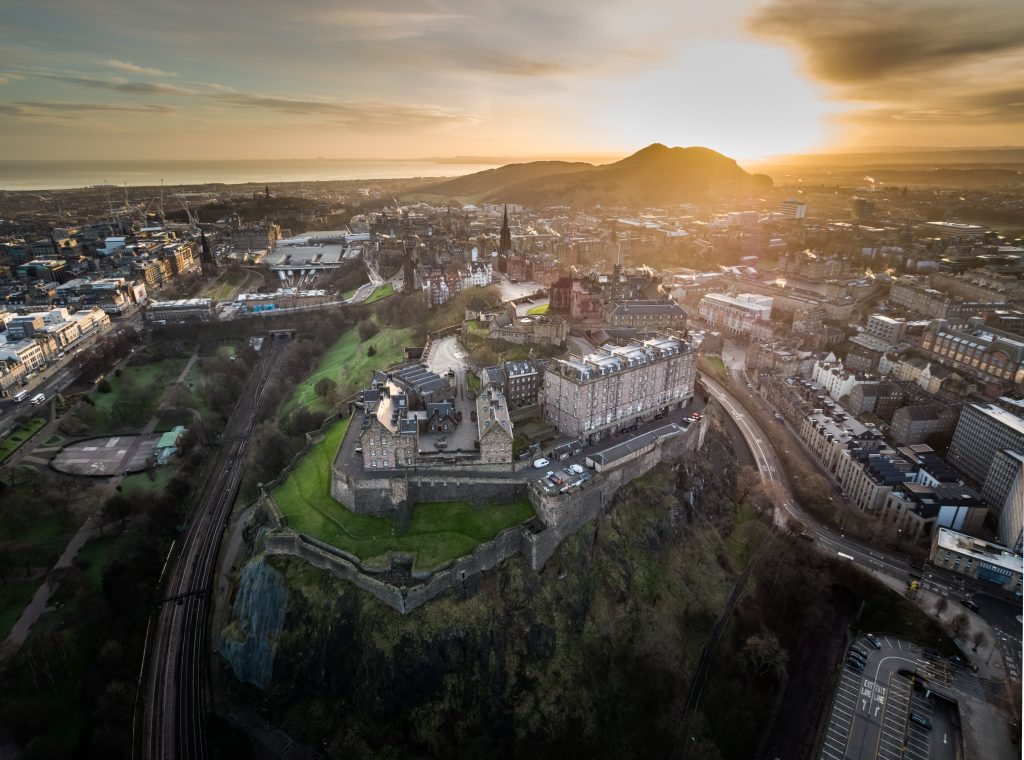NEW Research has found that nearly a quarter of the Scottish heritage sector at “high risk” due to the Coronavirus pandemic.
A survey of heritage businesses, organisations, social enterprises and voluntary groups was conducted to understand the effect of the crisis on the sector.
The key findings of the survey carried out by Historic Environment Scotland was that 22 per cent of business they face a “high risk” of not surviving without major intervention.
With sole traders or partnerships reporting the highest level of risk citing cashflow and future orders as the main source of concerns.
The results indicate that museums and those involved in education, training and life-long learning were most at risk.
Although, 80 per cent of respondents have experienced either a loss or postponement of work and revenue due to the current pandemic, while over 70% reported having to cancel planned income generating events.
The publication of the research coincides with the first meeting of the COVID Historic Environment Resilience Forum.
The plans have been informed by the survey into the impact of Covid-19 on the country’s heritage sector, the full findings and analysis of which have been published today.
Alex Paterson, Chief Executive of HES, outlined three important strands of work for HES and the sector that involved:
Taking practical steps to tackle the immediate impacts of the COVID-19 pandemic.
Adopting a collaborative approach to recovery, including sharing expertise, insights and information and developing a long-term vision for the future of Scotland’s heritage sector

The work will include considering how the sector can support the national recovery and wider agendas such as wellbeing and the transition to a sustainable low-carbon economy.
HES also intends to share its thinking and approach to resumption planning, which includes topics such as the safe reopening of historic sites.
Alex Paterson, Chief Executive of HES, said: “This is a difficult time for all of us working across the heritage sector, and on behalf of HES I would like to extend my gratitude to sector colleagues for responding so openly and honestly about the challenges we face.
“Our historic environment makes a vital contribution to communities right across Scotland – from supporting jobs and local economies to developing skills and learning, as well as promoting health and wellbeing – and we must champion the key role the sector has to play in our national recovery.
“While the current crisis has significant implications for Scotland’s heritage sector, it has also presented us with an important opportunity to come together to map out our vision for the future.
“In these uncertain times we understand the expectations on HES as the lead body for the sector. It is also more important than ever that we work together, and we want to use this survey as an important step in our path to recovery, serving as a basis for collaboration as we plan for the future challenges and opportunities facing the sector.”
Euan Leitch, Director of Built Environment Forum Scotland (BEFS), said: “The survey results highlight the extreme uncertainty facing all organisations, with the rapid changes in the situation making future planning very challenging. It also confirms the need for the recently established COVID-19 Historic Environment Resilience Forum, a collaborative space to inform the production of a route map of medium and longer-term actions to grow sector resilience, sustainability, and evidence the sector to be a beneficial participant in Scotland’s national recovery.”
Susan O’Connor, Director at Scottish Civic Trust, said: “The survey report highlights not only the immense challenges faced by small local groups in the light of the Covid-19 pandemic, but also the unusual opportunities for change it presents. We are all aware this is going to be a difficult period as we all adjust to a reduced funding landscape, lower visitor numbers and increased care in the army of volunteers who keep Scotland’s heritage sector alive, but this survey report reveals an underlying agility of thinking and approach that gives hope for a cautious optimism.”
Caroline Clark, Director of the National Lottery Heritage Fund in Scotland, said: “Good evidence-based tracking of the unfolding impacts of Covid-19 is crucial to informing our response to this crisis, whether as a funder such as ourselves, a charitable organisation or a sole trader at the front line of caring for our nation’s heritage. I’m pleased that our staff were able to collaborate with HES researchers, building on the learning from the National Lottery Heritage Fund survey which took place in March – just one small example of the collaborative working we will need to see increasing across the sector as we move forwards together.
“There is no question that this survey by Historic Environment Scotland sharply illustrates the challenges ahead. It is clear that there are particular concerns around the medium to long term. As funders, we need to listen to these messages and respond quickly to needs as they emerge, standing ready to support the change and innovations that this crisis is forcing on the heritage sector and the wider world.”
